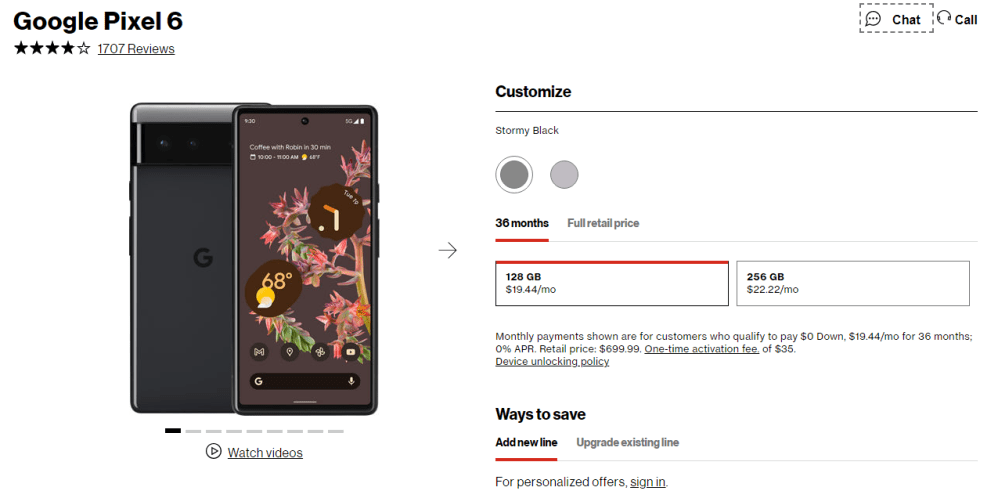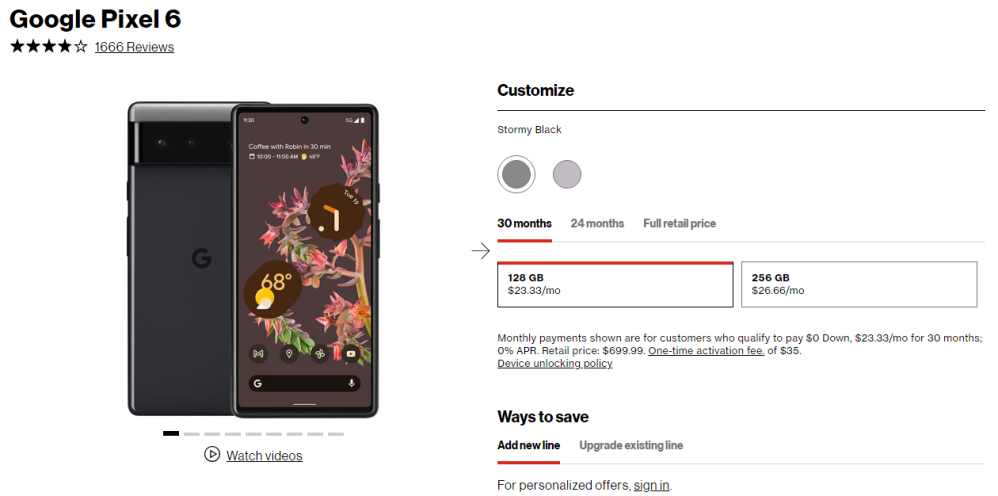
In the United States, carriers are the place where most smartphones are sold. Rather than buying these devices at their full cost, too, payment plans are usually the go-to for many. This week, Verizon has quietly done away with shorter payment plans, in favor of a new 36-month device contract.
As spotted by Droid-Life, Verizon has done away with all 24-month and 30-month payment options on its website, in favor of 36-month contracts for all devices. The change appears to have taken place just this week, as a look at archived pages from January 12 and January 31 still show the 24-month and 30-month terms.
The shift to 36-month device contracts for Verizon isn’t brand new for the industry, as AT&T has the same single plan for its customers. Only T-Mobile still offers shorter terms, with 24-month payment plans. On Verizon’s website, everything from the iPhone 13 series to Samsung’s more affordable devices have switched to these 36-month device contracts.
Longer contracts like these have the immediate benefit of lower monthly payments for customers, albeit with those payments now continuing for a full additional year. Verizon charges $19.44/month for the Google Pixel 6 under a 36-month term where the phone was $29.16/month on a 24-month plan and $23.33/month on a 30-month plan.


Importantly, Verizon won’t shift customers with existing payment plans to this longer term. It only applies to new customers. The carrier is also doing away with early upgrade options, with customers being required to pay off a device in full to end their contract, and no partial payments to speed up the term. There are some exceptions for iPhones. The new 36-month contracts also apply to smartwatches and tablets.
Verizon details the new plans in full on a FAQ page.
9to5Google’s Take
While lower monthly fees are certainly going to be attractive for some, the biggest problem I see with Verizon’s new contracts is that, in many cases, phones will lose support by the time a 36-month contract is up. Pixels, high-end Samsung Galaxy devices, and iPhones, of course, will see updates through that period of time, but many budget Android devices will lose any regular update support over a year before a contract is over.
There’s never been a better time for Android manufacturers to focus on long-term support, now that the largest carrier in the United States has effectively decided to lock all of its customers on the same device for three years at a time.
More on Android & Verizon:
- Verizon is dropping support for carrier billing through the Google Play Store
- TCL 30 V brings mid-range specs, Android 11, and C-Band 5G to Verizon for just $299
- Everything you need to know about Android updates on Samsung Galaxy devices
FTC: We use income earning auto affiliate links. More.



Comments